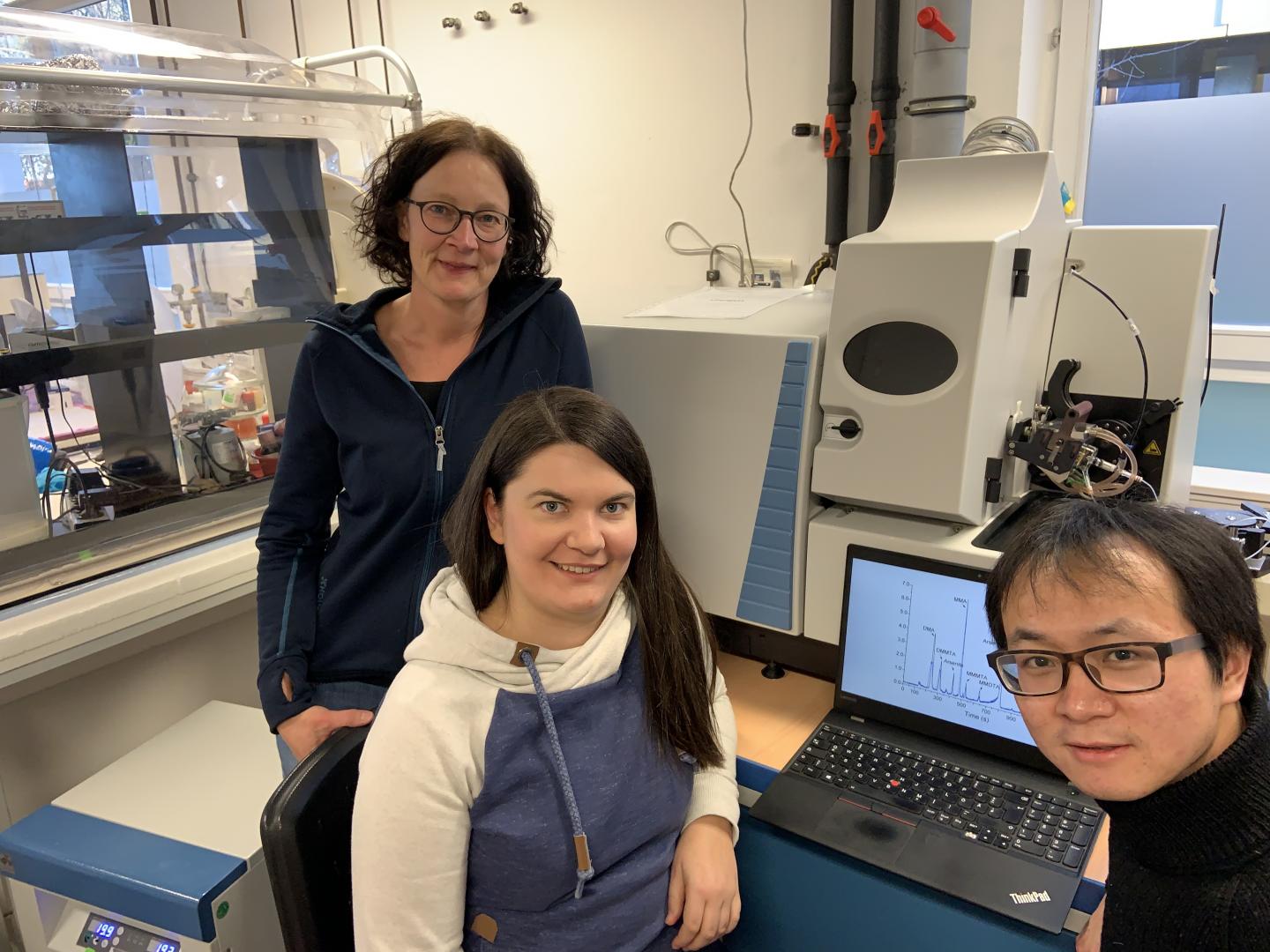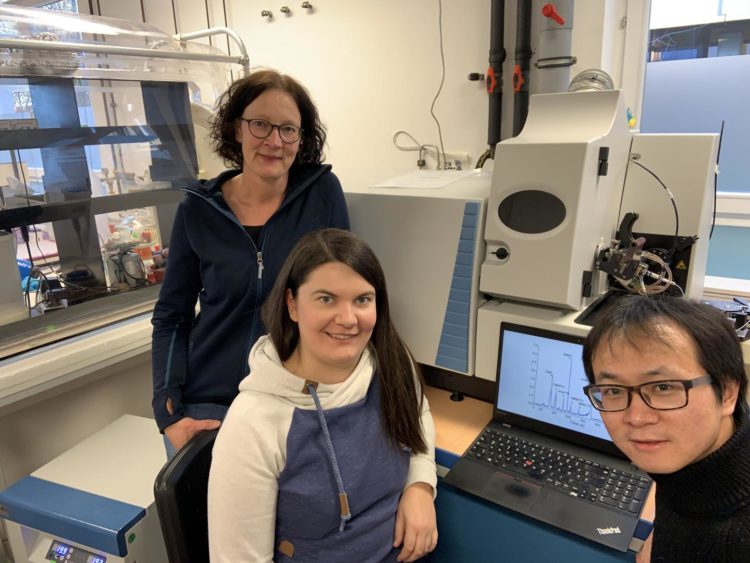Risk or opportunity for rice cultivation?

Credit: Photo: José Miguel Leon Ninin.
University of Bayreuth researchers, together with scientists from Italy and China, have for the first time systematically investigated under which conditions, and to what extent, sulphur-containing arsenic compounds are formed in rice-growing soils. To date, these thioarsenates have not been taken into account in assessments of the health effects of rice consumption. In the journal Nature Geoscience the scientists present their results and identify the urgent need for research with a view to protecting consumers from health risks.
A new measuring method for thioarsenates
The research team, headed by the Bayreuth environmental geochemist Prof. Dr. Britta Planer-Friedrich, has developed a measuring method by means of which thioarsenates in rice soils can be reliably detected. Up to now, the methods routinely used to monitor arsenic in rice fields have not been sufficient for this purpose. This is because they are not able to identify sulphur-containing arsenic compounds as such, or to distinguish them from oxygen-containing arsenic compounds. This shortcoming is highly problematic in terms of possible health risks. At least one organic sulphur-containing arsenic compound discovered in rice fields is already known to be carcinogenic. This makes it all the more important to specifically detect organic sulphur-containing arsenic compounds, and to examine them for their toxicity. Presumably, these compounds have been confused with non-toxic organic oxygenated arsenic compounds up to now due to inadequate measurement procedures.
Limit monitoring for all toxic arsenic compounds
“The uptake of the various thioarsenates in rice plants and the potential risks to human health arising from them urgently require further research. Rice is the world’s most important foodstuff and secures the basis of life for more than one half of the world’s population,” explains Planer-Friedrich, and calls for legally defined limits to be set for all toxic arsenic compounds in future. “Analytical procedures for limit monitoring, which correctly detect all of these compounds, must become routine”, says the Bayreuth scientist. At the moment, there is only a legal limit for inorganic oxygenated arsenic compounds, while organic oxygenated arsenic compounds are still categorized as non-toxic.
New approaches for forecasting methods
With their new measuring method, the researchers have observed the formation of sulphur-containing arsenic compounds over long periods of time in rice fields in Italy and China. It turns out the amounts of thioarsenates occurring are linked significantly to the pH-values of the soils and other easily measurable parameters. “These findings contain valuable starting points for the development of forecasting methods. If in future we could predict, without great technical effort, on which rice fields particularly large or only small amounts of sulphur-containing arsenic compounds are to be expected, it would be an important contribution to the assessment of health risks”, says the Bayreuth PhD student and first author of the study, Jiajia Wang MSc.
Urgent need for research on opportunities and risks
The authors of the new study consider further research to be indispensable in order to be able to scientifically assess the health risks posed by thioarsenates. For example, the exact transport routes with which these arsenic compounds are transferred from the rice fields to the rice grains, and to what extent, must be clarified. Studies in Bayreuth laboratories have already confirmed that sulphur-containing arsenic compounds can enter the rice plant and even reach the rice grain. However, based on our current state of knowledge, it cannot be ruled out that the total arsenic contamination of rice harvests could even decrease if sulphur-containing instead of oxygen-containing arsenic compounds are formed in the soil. This would be the case if sulphur-containing arsenic compounds were largely retained in the soil, or if rice plants were less able to take up these compounds.
At the University of Bayreuth, these relationships are being investigated in the research groups of Prof. Dr. Britta Planer-Friedrich and of plant physiologist Prof. Dr. Stephan Clemens. The German Research Foundation (DFG) and the Federal Ministry of Education and Research (BMBF) are supporting these interdisciplinary research projects. “Our further studies will show whether thioarsenates as a whole represent a risk or an opportunity for the production of rice containing the lowest possible amounts of arsenic, which is hazardous to health. Only then can further directives for water or soil management in rice fields and the targeted breeding of new rice varieties be developed,” says Planer-Friedrich.
###
Media Contact
Planer-Friedrich
[email protected]
49-921-553-999
Original Source
https:/
Related Journal Article
http://dx.





